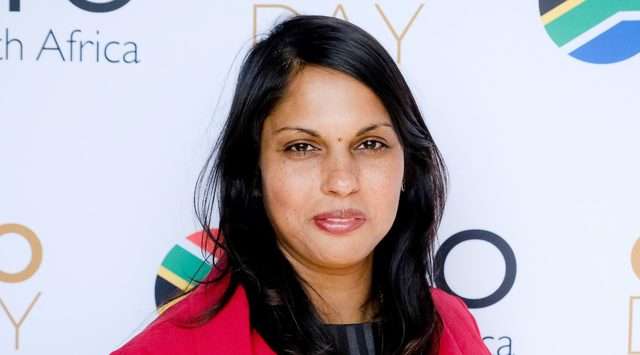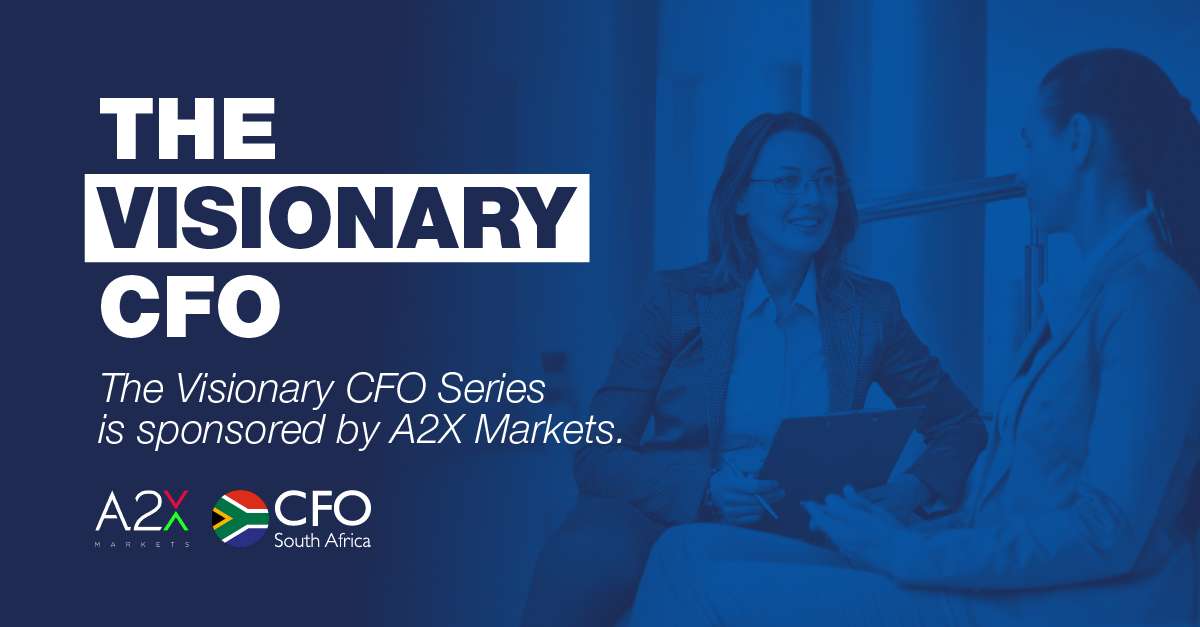Pramy started baking to manage stress, now she uses it to empower the women at Sappi Southern Africa.
Pramy Moodley, CFO at Sappi Southern Africa, started baking during the Covid-19 lockdown as a way to manage the stress of navigating the crisis. “Whenever my work pressures got too high, I would go into the kitchen and start baking cakes for my family.”
But when her two sons and husband could no longer eat at the pace she was baking, they suggested she take the leftover cakes to work. “My coconut and chocolate cakes are quite popular, and people have started placing orders for them in advance.”
|
On the back of a successful Visionary CFO Series in 2021 and 2022, A2X has once again partnered with CFO South Africa to bring you a series of interviews highlighting South Africa’s best and brightest CFOs, their insights and challenges. Find out how they help lead some of South Africa’s most successful companies in this bi-weekly interview series. |
It was during one of her baking sprees that Pramy came up with the idea to start a bake sale within Sappi Southern Africa’s Shared Service office, the proceeds of which would go to a charity. A few women in the office bought into the idea and also started baking to contribute to the sale. “We have quite a few ladies who are really good bakers, and you’d be surprised what they come up with, like milk tarts, chocolate brownies, caramel popcorn, samoosas, carrot cake, red velvet cake, and more!” Pramy says.
She explains that they raised approximately R3,500 with their first bake sale, half of which went to the Bobbi Bear foundation in Amanzimtoti, which cares for abused children, while the other half went to the Aryan Benevolent Home
Their most recent bake sale in May raised almost double the money it had made during the first one, which they used to buy and donate blankets to the NGOs that were helping support families that were impacted by the floods in KwaZulu-Natal, as well as stationery packs for underprivileged schools. .
The Women of Work
Since the initial bake sale, eight of the volunteers (including Pramy) have created a team called “the Women of Work”, where they try to empower the women in the office through informal talks, providing advice, and financial and career guidance.
“We piloted the initiative in September 2021 at our shared services by launching the forum, getting to know each woman on a personal basis, sharing a personal fact that the rest of the team didn’t know about and requesting the ladies to share ideas on what they would like to see in future meetings. We are currently rolling the concept out into the rest of the organisation,” Pramy explains, adding that they have identified women across various business units who have the power to drive the initiative within their operations. “It’s been so well received that the men in the organisation want to create a similar forum too.”
Eliminating waste
Pramy also spends a lot of her energy and time helping Sappi to execute its waste elimination strategy, which includes supporting transformation and streamlining its IT systems across the globe. “It’s quite a long process that encompasses both the finance and manufacturing processes of the group, including sales, procurement, logistics and supply chain modules,” she says.
Currently, Sappi has an annual budget with manual rolling forecasts. “A lot of our operations are using Excel, but we’re trying to move more towards a business planning and consolidation system, where we can use the data in the system to project our forecasts going forward. This will eliminate a lot of the rework that we currently have to do.
“Our processes for budgeting have changed too, and targets are agreed upfront based on input from various leaders with the intent that this should improve efficiencies and less rework. This is working fairly well, but there are still opportunities to optimise.”
Sappi is also in the process of introducing the automation of producing its manpower budget. “This has historically been done on Excel, which was very time consuming and prone to errors. So we introduced BPC Headcount planning into the system. Manpower budgeting is now much simpler.”
Sappi has been rolling out the transformation at an incremental pace globally to minimise the disruption to its operations.
Come war or high water
For the last two years, most of Pramy’s energy has been focused on navigating Sappi Southern Africa through the global economic, political and environmental crises. “It’s been a huge challenge to try and understand where our business is going when we didn’t even know when we would return to normal,” she says. “Customers reduced order intake and the availability of raw materials became a challenge.”
As a result, Sappi declared force majeure on the dissolving plant expansion due to the national lockdowns.
She explains that, because Sappi exports most of its dissolving pulp products, the port challenges that resulted from trade halts to try and curb the spread of the virus were fivefold to what the organisation had experienced before. “Severe delays were experienced due to port delays, resulting in both inbound and outbound deliveries being delayed by several days or weeks. We had to source alternate shipping carriers and had to explore local supplier availability.”
And while Sappi was trying to navigate the impact of the pandemic, South Africa saw a series of civil riots break out across Gauteng and KwaZulu-Natal in July 2021. With its main operation in KwaZulu-Natal, the organisation had to suspend its Saiccor, Tugela and Stanger Mills as a precaution due to transport disruptions.
“Fortunately our operations were not damaged by the riots but did impact our production,” Pramy explains. “Startup was key to ensure our mills would return to normal operating rates to ensure our customers had security of supply. We lost 28,000 tons of dissolving pulp (DP) and 7,000 tons of paper production, which impacted EBITDA by approximately R229 million.”
Just when the Covid-19 infection rates lowered and the civil unrest calmed down, painting a brighter picture for the new year, 2022 brought its own challenges.
In March, the conflict between Russia and Ukraine started, escalating into war. Sappi imports some of its raw materials and other chemicals from that region, and has had to look at acquiring these resources from alternative sources. “The rising fuel prices that have resulted from the war have negatively impacted all of our transport costs, and with the volume that we ship, the freight costs are skyrocketing,” Pramy says.
Then, in April, heavy rains in KwaZulu-Natal resulted in floods across its coastline. “All our operations were severely impacted, especially our warehouse. We are working through the damaged goods at the warehouse and trying to dispose of it in a secure and sustainable manner,” she explains. “We have made alternative arrangements to ensure delivery of raw materials and the transfer of finished goods. We have also secured additional warehouse facilities.”
Pramy adds that:
“Our operations have been battered so much for the last three years, we just can’t afford another year of disaster.”
With things finally returning to normal, Sappi is back on track and looking at ways to avoid facing the same headwinds should another crisis arise. “We have plans to ensure that we can adequately protect our sites for any future flood damage to our mills and warehouse facilities,” Pramy says.
Sappi has also put mitigation plans in place for the Russia-Ukraine crisis by sourcing from a wider range of suppliers outside of these regions.

Going back home
Pramy grew up in the rural community of Stanger, 64km north of Durban, and has since moved back home to try and regain her work-life balance. “The multiple crises have put quite a lot of pressure on our lives. Coming back to my hometown and having my family’s support has made a huge difference in terms of managing my work and being able to deliver without feeling like my kids are suffering. Now they have a good social life, we spend weekends with family, and we don’t have to travel far to get to the beach.”











